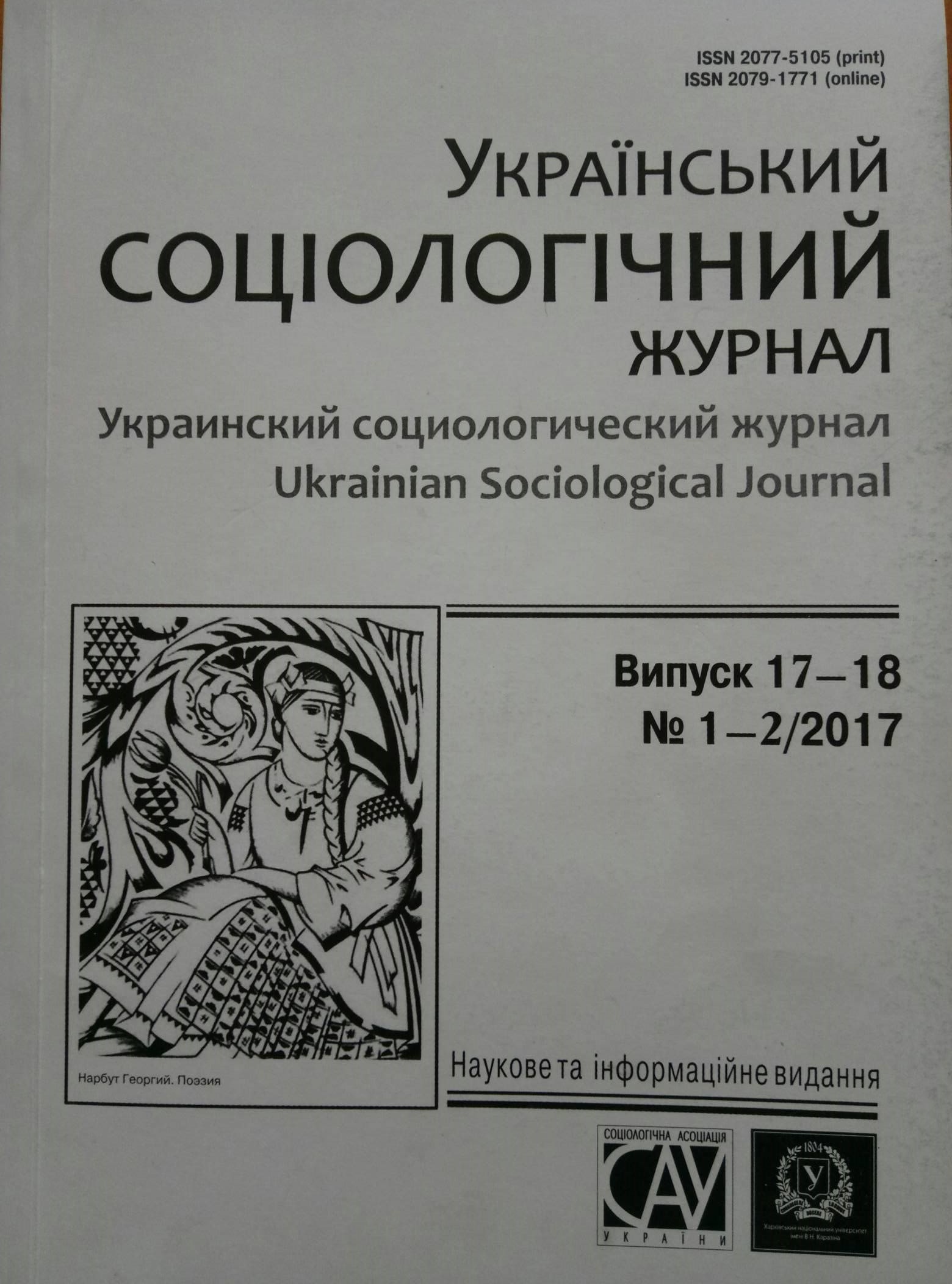Масові відкриті онлайн-курси: соціальні смисли, загрози, можли вості
Анотація
У статті розглядаються масові відкриті онлайнові курси (МООК), що стають одним з елементів сучасної освіти. МООК аналізуються як індикатор процесу (моно)централізації сфери науки і освіти. Аналізуються наслідки використання МООК як одного з видів електронного навчання, ризики і проблеми, породжені відмінностями e-learning від традиційної освіти. Зокрема, швидкість реагування електронного навчання на появу інновацій, неформальність і позапросторовість МООК розглянуто як чинники дистанціювання традиційної освіти від них. Аргументовано визначальну роль тілесної співприсутності не лише у конструюванні культурного капіталу студентів, але й у засвоєнні ними практик самоконструювання, які є критично важливими для його подальшого приросту. Таким чином, онлайн-курси, що позбавляють від інформаційної нерівності, слугують відтворенню традиційних соціальних нерівностей. Стверджується, що в силу їхньої доступності та відкритості створення таких курсів є спробою утримати пріоритетні позиції в глобальному освітньому і науковому полі через маніпулювання характером і якістю відтворення людського капіталу.
Завантаження
Посилання
Курзаева Л. В., Григорьев А. Д. Mассовые открытые онлайн курсы: сущность, специфические характеристики / Л. В. Курзаева, А. Д. Григорьев // Новые информационные технологии в образовании. – 2015. – № 8. – С. 250-253.
De Waard I. et al. Exploring the MOOC format as a pedagogical approach for mLearning. / I. De Waard, A. Koutropolous, N. Keskin, S. Abajian, R. Hogue, C. Rodrigues, M. Gallagher // Proceedings of 10th World Conference on Mobile and Contextual Learning, 2011. – Pp. 149-156.
Бадарч Д., Токарева Н., Цветкова М. МООК: реконструкция высшего образования / Дендев Бадарч, Наталья Токарева, Марина Цветкова // Высшее образование в России. – 2014. – № 10. – С. 135-146.
Дмитриевская Н. А. Массовые открытые он-лайн курсы как инструмент повышения эффективности образования за счет обеспечения соответствия перспективным тенденциям социально-экономического развития / Н. А. Дмитриевская // Новый взгляд. Международный научный вестник. – 2014. – № 6. – С. 23-27.
Баева Л.В. Исследовательские мегатренды в условиях информационного общества и проблемы социокультурной безопасности / Баева Людмила Владимировна // Информационное общество. – 2015. – № 2-3. – С. 13-24.
Christensen G. et al. The MOOC phenomenon: who takes massive open online courses and why? [Electronic source] / G. Christensen, A. Steinmetz, B. Alcorn, A. Bennett, D. Woods, E. Emanuel // SSRN 2350964 – URL: http://m4ed4dev.linhost1.jbsinternational.com/sites/default/files/the_mooc_phenomenon.pdf (assessed 27.08.2016).
Adamopoulos P. What makes a great MOOC? An interdisciplinary analysis of student retention in online courses [Electronic source] / P. Adamopoulos // Proceedings of the Thirty Fourth International Conference on Information Systems, Milan 2013. – URL: http://pages.stern.nyu.edu/~padamopo/What%20makes%20a%20great%20MOOC.pdf (assessed 20.10.2016).
Breslow L. et al. Studying learning in the worldwide classroom: Research into edX's first MOOC / L. Breslow, D. Pritchard, J. DeBoer, G. Stamp, A. Ho, D. Seaton // Research & Practice in Assessment. – 2013. – № 8. – Рр. 13-25.
Bruff D. et al. Wrapping a MOOC: Student perceptions of an experiment in blended learning / D. Bruff, D. Fisher, K. McEwen, B. Smith // MERLOT Journal of Online Learning and Teaching. – 2013. – Vol.9. – No.2. – P. 187-199.
Бурдье П., Пассрон Ж.-К. Воспроизводство: элементы теории системы образования / П. Бурдье, Ж.-К. Пассрон. – М. : Просвещение, 2007. – 267 с.
Hrastinski S. Synchronous & Asynchronous E-learning / Stefan Hrastinski // Educause Quarterly. – 2008. – No. 4. – Pp. 51-55.
Mackness J., Mak S., Williams R. The ideals and reality of participating in a MOOC / J. Mackness, S. Mak, R. Williams // Proceedings of the 7th International Conference on Networked Learning 2010. – Lancaster: University of Lancaster, 2010. – Pp. 266-275.
Радаев В. В. Понятие капитала, формы капиталов и их конвертация / В. В. Радаев // Экономическая социология. – 2002. – Т. 3. – № 4. – С. 20-32.
Бугайчук К. Л. Массовые открытые дистанционные курсы: история, типология, перспективы / К. Л. Бугайчук // Высшее образование в России. – 2013. – № 3. – С.148-155.
Браславский П. И. Тело как интерфейс: антропологические аспекты современных коммуникаций / П. И. Браславский // Эпистемы. – 2004. – Вып. 3: Язык. Дискурс. Текст. : материалы межвузовского семинара : альманах. – С. 156-165.
Pappano L. The Year of the MOOC / L. Pappano // The New York Times. – 2012 – 2.11.12.
Азаренко С.А. Сообщество тела / С.А. Азаренко. – М. : Академический Проект, 2007. – 239 с.
Копылова С. В. Техники дисциплинирования в традиционной образовательной практике / С. В. Копылова // Современные наукоемкие технологии. – 2004. – № 5. – С. 47-48.




